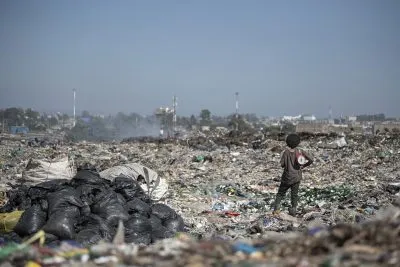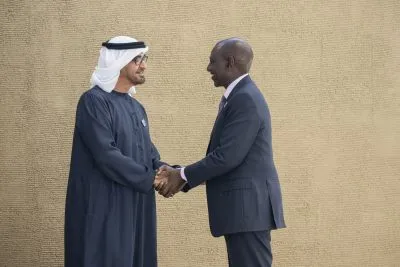Ghana, like other African ‘Lion economies’, is going through a construction boom both in infrastructure expansion and in the high-end housing and business premises sectors. But for the majority of urbanites – many recent migrants from the rural areas – affordable housing is still only a dream. What can and should be done? Neil Ford discusses.
Strong economic growth is generally accompanied by a construction boom and the situation in Ghana is no exception. Roads, ports, luxury apartment blocks and gated communities are springing up in the coastal cities, as foreign and domestic investment steadily rises. Yet something is missing from this picture – the provision of popular housing. Most urban residents live in informal settlements and even many middle-class workers cannot afford to buy or rent a home.
The capacities of both of the country’s two main ports, Takoradi and Tema, are being increased to serve the growing economy, providing a great deal of work to the construction industry in the process.
The berths at Tema container terminal are currently just 11.5 metres deep but are to be deepened to 16 metres, which will enable the terminal to serve the much larger container ships that are beginning to dominate global trade but which most African ports cannot handle. At least five new berths are to be constructed, including two at the container terminal, two at the multi-purpose terminal and a new dedicated cruise ship terminal, which the government hopes will boost tourist visitor numbers. Further container berths will be added at a later date.
James Owusu-Koranteng, the director of the port of Takoradi, says: “This is a major development agenda for the port of Tema. It is borne out of the GPHA’s [Ghana Ports and Harbours Authority] sustained effort to keep up the pace of development and expansion of our ports ahead of the rapid population and the socio-economic demands of the country.” A tender for the contract to carry out the work is already under way. A new road between the port and Ghana’s coastal highway is also to be constructed.
International and domestic firms are continuing to undertake a variety of industrial and infrastructural projects but the situation in the housing sector leaves much to be desired. The government estimates that 85,000 new homes need to be built every year over the next 20 years to cope with the housing shortage and demographic change. The current pace of construction is well below this level, which UN Habitat believes in any case is an underestimate.
Whatever the real figure, the Ghanaian population is growing rapidly by international standards and Greater Accra already has more than 4m inhabitants, while rising levels of wealth are expected to see the average household size decline, boosting the number of households.
Want to continue reading? Subscribe today.
You've read all your free articles for this month! Subscribe now to enjoy full access to our content.
Digital Monthly
£8.00 / month
Receive full unlimited access to our articles, opinions, podcasts and more.
Digital Yearly
£70.00 / year
Our best value offer - save £26 and gain access to all of our digital content for an entire year!
 Sign in with Google
Sign in with Google 


